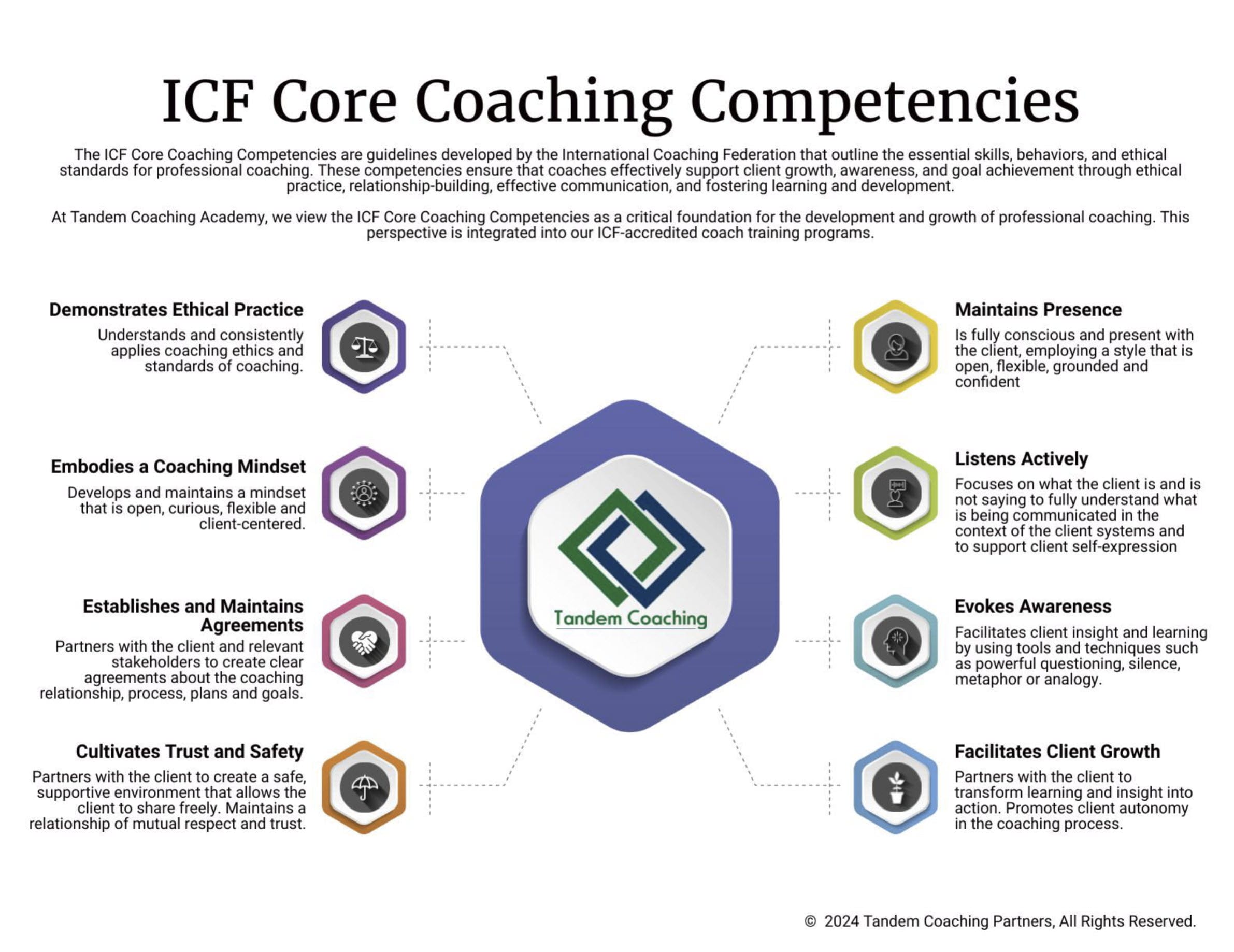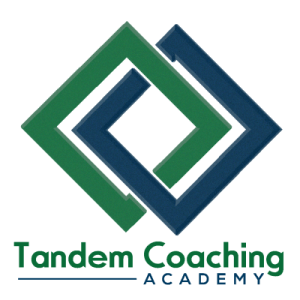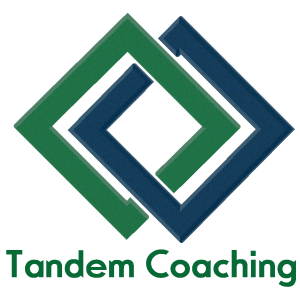
Unlock Your Coaching Potential with Tandem!
Dive into the essence of effective coaching with our exclusive brochure, meticulously crafted to help you master the ICF Core Coaching Competencies.
Table of Contents
Tl;Dr; In this article, we explore the essential types of coaching agreements: session agreements, coaching engagement agreements, and legal contracts. These documents are crucial for maintaining clarity, professionalism, and legal protection in coaching relationships. Utilizing the STORMMES© model, coaches can effectively structure engagement agreements by outlining goals, timeframes, and success measures. This ensures a collaborative and transparent process, ultimately facilitating client self-discovery and progress.
In the dynamic world of coaching, the term “coaching agreement” often leads to confusion, and understandably so. This versatile term has three distinct areas of application within the coaching relationship, each with its unique implications for coaches and clients alike.Let’s break down these applications to create clarity:
- The Session Agreement: These agreements, set before individual coaching sessions, outline logistics, such as contingencies for missed appointments, for example, expectations, and responsibilities for both the coach and the client.
- The Coaching Engagement Agreement: This comprehensive agreement defines the scope of the coaching relationship for both individual clients and organizational clients. We’ll dive into the STORMMES model to structure engagement agreements effectively.
- The Coaching Contract: This legal document sets the foundation for the relationship, outlining essential elements such as payment terms, a confidentiality clause, and service parameters.
- A thorough understanding of these three agreement types empowers coaches to cultivate professionalism, provide legal safeguards, and establish clear expectations for a successful and collaborative client experience.
The Session Simple Coaching Agreement – It Is What We Do
When we discuss Competency 3 – “Establishes and Maintains Agreements” – we zero in on creating powerful session agreements within your coaching practice. Consider these competency markers as essential guideposts for this article:
- Partnership for Purpose: “Partners with the client to identify or reconfirm what they want to accomplish in the session.” This highlights the collaborative nature of coaching. Work with your client to define their session goals, ensuring understanding and buy-in.
- Focus on Resolution: “Partners with the client to define what the client believes they need to address or resolve to achieve what they want to accomplish in the session.” Here, we delve into the heart of progress. Help your client pinpoint those key areas that need to be tackled to move them closer to their objectives.
- Measurable Success: “Partners with the client to define or reconfirm measures of success for what the client wants to accomplish in the coaching engagement or individual session.” Coaching isn’t just about abstract goals. It’s about clarity! Collaborate with your client to determine tangible indicators of progress both within a session and across the broader engagement.
The session agreement elevates a coaching conversation from aimless to empowered. Imagine it as a collaborative blueprint for your session – outlining both desired outcomes and a navigational plan for overcoming obstacles. Unlike solving problems on the client’s behalf, a strong session agreement puts the client in the driver’s seat, fostering self-discovery and sustainable growth. The client benefits tremendously, setting goals, gaining awareness, and charting their progress within the coaching relationship.
Remember, the coach’s role is crucial. This agreement isn’t a simple formality; its creation is the essence of skilled coaching. It demands active listening, intuitive questioning, and championing the client’s own agenda.
Many coaches fall into the trap of seeing the coaching agreement as a formality to complete before ‘real’ coaching starts. This checkbox approach leads to rigid, uninspired agreements that miss the mark in providing maximum client value. To create truly impactful coaching experiences, it’s vital for coaches to embrace two key principles:
- Awareness: the Heart of Coaching: At its core, coaching sparks self-awareness in the client, empowering them to go beyond simple task lists. True transformation stems from deep understanding.
- ‘Hello’ Starts the Journey: Coaching isn’t a light switch you flip on after an agreement. It’s a mindset present from the moment a coach-client relationship begins. That initial connection sets the tone for every step that follows.
Beyond Surface Goals: Uncovering Deeper Motivations
Crafting a session agreement should be viewed as a collaborative exploration – an opportunity to not only outline tangible goals but also illuminate the underlying motivations propelling the client forward. When approached strategically, this transforms the agreement into a valuable asset within your coaching toolkit. Think of it as a foundation from which breakthroughs emerge, ultimately empowering your client and driving significant transformation.
Partnering with the client to define their session goals is an inherently insightful process. This requires coaches to go beyond surface-level requests and probe deeper. Clients sometimes need that initial exploration to clarify what they truly hope to achieve. While they might come with a topic in mind, articulating an objective and identifying clear measures of success requires collaboration.
The Coach’s Toolkit: Questions that Spark Insight
During this initial stage, clarifying the goal isn’t just something to check off your list. It’s a critical element within the larger coaching relationship. Powerful open-ended questions are your tool of choice here! Ask them things like:
- ‘What brings this topic to the forefront today?’
- ‘How is this current situation impacting you?’
- ‘What shifts would make a meaningful difference?’
- ‘Are there obstacles preventing this change?’
- ‘Why is resolving this so important to you?’
- ‘If we envision progress, where would you like to be?’
- ‘What lies between your current state and that desired point?’
- ‘How will you recognize a successful plan?’
- ‘How will reaching this session goal feel once complete?’
- ‘In what ways does this align with your broader aspirations?’
These questions pave the way for a richer coaching experience. They create space for self-reflection and align your services directly to the client’s core needs.
Presence, Partnership, and Progress: Essential Coaching Skills
Remember, the list of sample questions I provided is a starting point, not a script! True mastery occurs when you go beyond rote formulas and cultivate a sense of presence and genuine partnership with your client. Be intensely curious! Actively listen and let the client’s unique situation guide your approach. Your expertise allows you to identify themes and ‘pull on the strings’ they offer, gently navigating them toward greater self-discovery.
While you focus on exploring the human experience behind the topic, don’t lose sight of your key role in providing structure. This delicate balance is what sets skillful coaching apart. Your responsive questions serve as guideposts, empowering the client to chart their own course within the coaching session. Ultimately, you facilitate progress toward the destination they uncover during this powerful collaborative process.
Master the Coaching Engagement Agreement: Roadmap for Your Coaching Business Success
If you’ve completed an ICF accredited training program, you’ve likely spent ample time developing your skills in crafting coaching agreements. At Tandem Coaching Academy, we’ve discovered that many professional coaches find this core competency particularly challenging. This difficulty stems from the unique nature of coaching conversations. While they aim to feel natural and foster a strong coach-client relationship, they differ fundamentally from everyday interactions. You likely won’t initiate a casual chat with questions like, ‘What do you hope to achieve today?’ or ‘How will we measure the success of our time together?
Adding to the complexity, a coaching relationship differs significantly from friendships or familial bonds. While trust and intimacy are essential, a coach must uphold clear professional boundaries. This relationship exists for a specific purpose, with client goals driving the entire interaction. Confidential nature of coaching lies at the heart of this unique dynamic.
Unfortunately, many coaches approach client relationships similarly to the practice sessions they conducted as students. Each conversation becomes isolated, lacking an overarching vision for the coaching engagement. As a fellow coach, it’s always surprising to experience this firsthand, even from practitioners with strong foundational skills. It underscores the importance of establishing a clear purpose from the outset.
As a client, I prioritize coaches who grasp the distinction between managing a single coaching conversation and cultivating the broader coaching relationship. I won’t engage with a coach who lacks a clear roadmap: defined goals, measures of success, and collaborative processes. I encourage anyone seeking coaching services to maintain these high standards. Coaches who prioritize the overarching relationship structure are far more likely to guide you toward your desired outcomes than those who approach each session in isolation.
I was thrilled to see the International Coach Federation (ICF) reflect this emphasis in their updated Core Coaching Competencies. By formally recognizing the significance of the relationship agreement alongside the session agreement, they publicly underscore its critical role.
STORMMES – A Way to Craft Your Coaching Agreements
Recognizing this crucial distinction, I developed the STORMMES© model for crafting robust coaching engagement agreements. Years of teaching this within our Accredited Coach Training Program and receiving positive feedback from graduates underscore its lasting value. Coaches find it consistently applicable for diverse settings – individual clients, team environments, and even large-scale organizational transformations like Agile implementation.
I created STORMMES© out of my own professional need. I sought a reliable method to ensure strong client relationships from the outset of any coaching engagement. It had to cover essential foundational elements for a successful journey and clearly outline ways to measure progress throughout. This structured approach has helped me deliver greater impact consistently for my clients.

The STORMMES© acronym conveniently encapsulates essential conversations to have when you co-create a coaching relationship with your client. While presented linearly for clarity, understand that it’s rarely a step-by-step checklist. The hallmark of an exceptional coach is responsiveness – being attentive to your client’s unique needs and adapting the flow of these conversations organically. Prioritizing the client’s experience takes precedence over strictly adhering to any model, however powerful.
Let’s start breaking down the STORMMES© into its conversational components.
S – SUBJECT
The initial focus of your coaching engagement should center around defining a shared understanding of what you and your client will be working towards. This discussion fosters both alignment and buy-in for the journey ahead. Consider an example: a client expresses a desire to improve communication skills and enhance their executive presence within their organization. During this conversation, terms like ‘confidence’ and ‘leadership impact’ might arise, giving you greater insight into their underlying aspirations.
Importantly, this stage sets the scene for future coaching conversations and lays a foundation your engagement rests upon. It’s about more than simple task allocation—it’s a chance to uncover deeper meanings and create a strong collaborative bond. Your expertise can help the client refine their broad goals into more focused outcomes. This organic exploration of the ‘Subject’ often provides a natural segue into discussing ‘MOTIVATION’. Understanding what truly drives the client is essential for facilitating lasting transformation.
T – TIMEFRAMES
While certain logistical aspects might be outlined upfront within a coaching contract, a deeper conversation around timeframes remains vital. Whether in an initial consultation, intake session, or formal contract review, ensuring client agreement is crucial. Here’s a breakdown of essential elements:
- Engagement Length: Establish both duration (weeks, months) and a defined endpoint (completion of number of sessions). This provides direction throughout the coaching relationship. Importantly, never leave this open-ended! A set timeframe protects both you and the client from misunderstandings far down the line.
- Frequency: Will sessions follow a regular, pre-scheduled cadence, or allow client-initiated booking? Clarifying expectations streamlines scheduling within your life coaching business. Discuss what options work best for your practice and consider the client’s needs. Proactively scheduling all sessions at the outset creates consistency and blocks dedicated time on both your schedules. And scheduling their first session is a must – just do it now!
- Session Length: Align on standard session duration. Address policies regarding lateness and its impact on session time. Establish clear “no-show” repercussions that protect you professionally.
- Progress Check-Ins: Formalize intervals for assessing progress and potentially adjusting goals. While flexibility is valuable, outline an agreed-upon framework for initiating changes (by either coach or client). Preemptively discussing how potential conflicts will be handled fosters trust and professionalism. As a coach, reserve the right to interject every 3-4 sessions with a quick progress check-in. This keeps you both mindful of overarching goals and demonstrates attentiveness.
O – OUTCOMES
Defining desired outcomes serves as the heart of a successful coaching engagement. This conversation explores the transformative results your client seeks beyond simply resolving immediate challenges. It answers the core question: “What will fundamentally change after our coaching journey if we succeed?”
Here’s where your coaching expertise can shine! Guiding clients toward well-defined and meaningful outcomes can significantly impact their long-term growth. To help them gain clarity, consider employing several powerful tactics:
- Outcome Sessions: For significant, life-altering goals, dedicating one or more coaching sessions solely to outcomes provides space for deeper exploration. During these focused sessions, help your client articulate what achieving their goal will genuinely mean, the personal impact, and wider benefits this success unleashes.
- Well-Formed Outcomes: Introducing structured methods, such as the concept of “well-formed outcomes”, can create a tangible framework for your client. Tools like this ensure goals are clearly defined, personally relevant, within the client’s control, supported by evidence, and aligned with their broader values.
- Beyond Problem-Solving: Emphasize going beyond mere solutions and into aspirations. Ask empowering questions to uncover their ideal future once the hurdle is overcome. What new opportunities emerge? How will their outlook and self-belief change? Painting this compelling picture strengthens motivation and builds resilience throughout the coaching process.
By taking a multifaceted approach, you transform the “Outcomes” conversation into a collaborative and inspirational experience. The clarity you help facilitate sets the tone for the entire coaching engagement and greatly increases the likelihood of lasting transformation for your client.
Establishing crystal-clear roles lays the foundation for a successful coach-client partnership. Unfortunately, many new coaches find themselves facing clients who fundamentally misunderstand the nature of coaching, seeking consultancy instead. Addressing this directly ensures all parties remain satisfied and fosters a productive dynamic.
The International Coaching Federation (ICF) squarely places the responsibility of clarifying the “what” and “how” of coaching on the coach. Never assume pre-existing knowledge! Even if a client claims prior experience with professional coaching, dig deeper. A client might have misconstrued a past interaction and labeled it ‘coaching’ incorrectly. Ask about what they valued most from that experience. This quickly surfaces potential misunderstandings, clarifying both expectations and whether true coaching best serves their needs.
Here’s where a tailored checklist, agreed upon by both client and coach, becomes invaluable! Consider aspects such as:
- Coaching Process: Offer a brief overview of the coaching experience, explaining that focus lies on exploration, discovery, and client-driven action. This isn’t instant advice or ‘fixing’ of problems by the coach.
- Confidentiality & Ethics: Underscore your commitment to upholding ICF ethics and maintaining strict confidentiality – key features distinguishing coaching from less formal relationships.
- Client Responsibility: Emphasize that ultimate success depends on the client’s dedication, ownership of their growth, and proactive effort between sessions. This sets realistic expectations.
- Coach’s Role: Define yourself as a facilitator, not an expert with all the answers. Explain you’ll guide exploration, challenge assumptions, and offer new perspectives through questions and reflective practices.
- Client’s Role: Explain their active participation throughout, requiring open communication, reflection, and willingness to implement strategies in the real world.
- Preparation & Reflection: Briefly touch on how your client can maximize session success through focused preparation and reflective work between engagements.
- Communication: Discuss preferred communication modes between sessions, setting clear boundaries while remaining responsive within agreed-upon timeframes.
M – MEASURES
Defining clear measures of success is a vital step, often linked to your “Outcomes” discussions. For each goal your client envisions, collaboratively explore how they’ll recognize that desired shift. This elevates coaching outcomes and increases buy-in from the client.
Here’s where quantitative and qualitative measures find their place:
- Quantifiable Measures: Support client goals with tangible numbers or outcomes. A promotion earned, a target GPA increase, or specific business growth targets serve as clear and objective markers of progress.
- Qualitative Measures: For goals focused on feelings or inner experiences (“feeling more confident”, for example), guide deeper reflection. Ask powerful questions:
- “How will greater confidence manifest in your actions?”
- “Where’s your confidence today on a scale of 1-10, and where would success place you?”
- “Describe specific things you’ll do differently when you reach your desired confidence level. “
The beauty of qualitative measures lies in creating a concrete baseline, facilitating the “before and after” comparison during your coaching engagement.
Milestones & Adjustments:
Beyond final results, discussing intermediate milestones offers additional benefits. Break significant goals into actionable steps, marking measurable points throughout the journey. This encourages both you and your client , validates progress, and allows for proactive adjustments if needed.
Key Points to Emphasize:
- Client-Driven: While offering examples, encourage your coachee to articulate their unique measuring stick, fostering personalized goals.
- Flexibility: While having defined milestones is wise, highlight that measures can evolve as client priorities change.
- Process Markers: Celebrate not only achievement but new habits, behavioral shifts, or insights as powerful signs of progress alongside defined outcomes.
M – MOTIVATION
Uncovering the driving force behind your client’s engagement is the true heart of this conversation. Motivation goes beyond goals or outcomes – it’s the inner fuel propelling the client through challenges and setbacks. This powerful “why” ties directly to your earlier “Subject” and “Outcomes” discussions.
Here are effective ways to delve into your client’s underlying motivation:
- The Heart of Goals: Ask why each goal has personal significance. What positive shift will result from achieving it? This connects outcomes to individual aspirations.
- Value Exchange: Explore the tangible impact – on life, career, or relationships – a failure to achieve these goals would have. In contrast, ask what exciting things become possible if success is reached. This underscores the value of investing in their transformation through coaching.
- Stakes & Opportunity: Ask pointed questions: “What compelling possibility might you access by attaining this goal?” or “What might be lost by staying where you are?” This brings urgency and highlights the importance of action.
Coaching Best Practices:
- Openness: Frame this conversation as a safe space for your client to share hopes, fears, and even limiting beliefs.
- Curiosity: Avoid assumptions. Deep exploration may reveal multiple layers of motivation beyond surface-level desires.
- Timing: You may revisit this conversation at various stages as client priorities shift or challenges emerge. It’s a valuable touchstone to renew focus and determination throughout the engagement.
Harnessing motivation can dramatically impact goal achievement. When a client connects their actions to deeply personal desires and potential gains, they become unstoppable!
E – ENVIRONMENT
A successful coaching engagement rarely occurs in a vacuum. Understanding your client’s professional and personal environment offers valuable context and unlocks deeper levels for transformation. It reveals obstacles, supportive factors, and resources the client can tap into.
Consider guiding this conversation with the following prompts:
- Influential Factors: Discuss both positive and negative influences within the client’s environment. Explore workplace culture, familial dynamics, resources (finances, time, access to tools), or anything else impacting their pursuit of goals.
- Stakeholders & Support: Ask “Who else, in your professional or personal life, could support your success?” “Are there individuals whose understanding or cooperation might be key for reaching your goals?” This identifies important allies or potential areas where proactive communication is needed.
- Potential Barriers: Help your client anticipate lifestyle factors, environmental distractions, or internal habits which might hinder progress. Discussing challenges upfront strengthens preparedness.
- Leveraging Resources: Explore accessible tools, technologies, supportive people, or external expertise the client can tap into. Discuss how creative use of the environment can offer leverage in their journey.
Coaching Strategies
- Holistic Lens: View your client not in isolation but within their specific ecosystem. Recognize how these broader factors contribute to current challenges and possibilities.
- Systems Thinking: If relevant, encourage clients to identify interrelationships within their environment which have cascading impacts. This can illuminate complex challenges and highlight new solution pathways.
- Collaborative Problem-Solving: Help clients brainstorm ways to overcome environmental obstacles or to better utilize their supportive network. This transforms external factors into a positive force for growth.
The Environment can significantly empower or hinder coaching outcomes. Discussing this openly empowers you and your client to proactively craft strategies for maximum advantage.
S – START
“Start” might seem deceptively simple, yet this conversation lays a critical foundation. With likely multiple goals in play, strategic prioritization ensures both you and your client are expending time and energy most effectively within your coaching engagement.
Here’s where guiding clients with clarity will shine:
- Ranking Importance: Facilitate open discussion about which goals hold the highest priority and greatest impact on your client’s overall picture. This isn’t a rigid exercise, but an organic one with room for evolution.
- Connections & Conflicts: Some goals may work in tandem. Other potential conflicts might arise in terms of time or resource allocation. Discuss this candidly, allowing the client to make informed decisions.
- Actionable “Where to Begin”: Avoiding overwhelm, identify the one impactful yet achievable starting point. Remember, this might not be the most “urgent” goal but the one with the greatest potential to build early momentum.
- The Role of Coaching: Highlight your position as a thought partner and collaborator in determining this actionable focus throughout the engagement. This isn’t about the coach dictating but supporting the client’s self-discovery and strategic decision-making.
Emphasizing Outcomes
Beyond a series of discussions, your insights underscore an outcome-oriented perspective. Consider adding a paragraph similar to this:
Coaching engagements differ from casual conversations. They propel clients toward goals that hold a deep personal significance. The STORMMES© model serves as a strong framework, providing both flexibility and direction for a coaching relationship designed to deliver transformational results.
ICF Competency 3 Establishes and Maintains Agreements in Action
In our previous chapter, we outlined the STORMMES© model’s power in forging robust coaching engagement agreements. However, agreements in coaching aren’t a static ‘set it and forget it’ transaction. ICF Competency 3 emphasizes the dynamic and evolving nature of the coach-client-stakeholder relationship throughout the engagement.
Agreement as Action
Let’s first clarify “establishing” vs. “maintaining” agreements:
- Establishing: Defined through conversations covering STORMMES©: Subject, Timelines, Outcomes, etc. These are your foundational components for success.
- Maintaining: This encompasses flexibility, revisiting goals as client priorities shift, and addressing challenges alongside your client to support continuous adaptation. ICF’s focus here ensures accountability from both coach and client while ensuring the evolving engagement still achieves mutually-desired outcomes.
Mapping to STORMMES©
Recall that your STORMMES© model already facilitates strong alignment with this ICF competency marker:
- S-Subject, O-Outcomes, M-Measures: Establish initial focus and define success.
- T-Timelines, E-Environment: Contextualize goals, highlighting temporal factors and any external influences to anticipate.
- R-Roles, M-Motivation: Foster accountability and tap into the client’s driving force.
Identifying Stakeholders
Your analysis of who constitutes “relevant stakeholders” offers essential practical value for coaches. Here’s where collaborative exploration plays a vital role:
- Self-paying Clients: While there may be fewer direct stakeholders, consider indirect spheres – a supportive partner impacting work-life balance, for instance. These factors inform client success indirectly.
- Organizational Coaching: Navigating organizational stakeholders gets complex and you want to make sure you get it right. Help your client map individuals impacting, supporting, or potentially jeopardizing success, even if those outside the agreement aren’t actively involved in sessions.
- Differentiating Need-to-Know: Emphasize that coaching requires confidentiality between coach and client. Not all stakeholders need constant progress updates; guide discussions regarding who shares in updates for maximum positive impact on the client.
Your role includes guiding client thinking not dictating stakeholder involvement.
Organizational Coaching: Balancing Focus, Alignment, & Influence
When organizations invest in coaching for individual employees, it’s vital to recognize the interplay between personal growth goals and company-level expectations. Organizations, whether intentionally or implicitly, become relevant stakeholders with a vested interest in the coaching outcome. This highlights the coach’s role in fostering productive multi-party alignment for sustainable success.
The Company-Level SOW: A Framework, Not a Dictate
Often, a Statement of Work (SOW) is negotiated between a coach and an organization. While essential for legal terms and broad goals, the SOW shouldn’t dictate the coach-client engagement plan. Instead, think of the SOW as a foundation – outlining ethical boundaries and ensuring alignment with organizational needs. Within this, the coach guides further exploration to achieve desired outcomes specific to the individual client.
Discover Your Coaching Tribe
Accelerate your coaching journey! Connect with fellow coaches who are constantly elevating their skills, exchanging insights, and pushing each other to excel. Join our community today.
Collaborative Planning: Navigating Needs & Expectations
Aligning client goals with the organization’s expectations often requires a collaborative approach. This fosters understanding between the coach, client, and relevant stakeholders (managers, HR, etc.), ensuring shared investment in the coaching journey. While ultimate focus remains on the client, consider if stakeholders should contribute meaningfully to goal planning and success measure definition. Transparency and shared buy-in at this stage prevent later miscommunication and potential dissatisfaction.
Clarity, Ethics, & Adaptability: Coaching Beyond a ‘Contract’
The ICF highlights three central areas within this competency: clarifying coaching’s scope, defining the relationship itself, and outlining practical, logistical agreements. Let’s take a closer look:
- Explaining “Coaching:”: For both new clients and in multi-discipline work, be transparent about coaching’s focus on facilitation vs. providing expert advice or directives. This includes differentiating it from closely related fields like therapy, as you rightly note. Mismatched expectations lead to dissatisfaction and ethical dilemmas, harming both client and the profession itself.
- Relationship Boundaries: A competent coach doesn’t simply state but collaborates with the client and any relevant stakeholders to agree on appropriate interaction guidelines for maximum mutual benefit. This is essential within both simple AND complex organizational work.
- Logistics & Flexibility: While legal protections often necessitate a formal contract, particularly in corporate settings, coaching is far more dynamic than its legalities. As a professional, discuss openly with clients how goals or parameters may adjust over time while remaining within ethical and contractual bounds.
- The Power of the Verbal: the ‘relationship agreement’ itself doesn’t require written form to be valid or hold strong value. Often, conversations using your STORMMES© framework capture client needs and set expectations far better than legalistic jargon. However, a coach also should have methods for documenting those verbal agreements with their client for later reference. These internal practices aren’t defined by ICF but demonstrate best practices and professionalism,
Managing Complexity & Mismatched Expectations
Your experience highlights a common tension, especially when a client desires immediate solutions, blurring the line between ‘consulting’ and true coaching. Several coaching decisions arise:
- Is This Work For ME? A coach is not obligated to work under client mandates undermining the coaching process, even with a signed SOW. Ethical self-assessment is vital and should come well before the contract is signed — is genuine coaching possible under that pressure? Is there even a clear understanding of what ‘coaching’ can deliver versus alternative forms of engagement?
- Can My Approach Serve Them? If mismatched expectations can’t be reconciled, is there space to modify how you facilitate to fulfill the engagement while remaining true to your professional standards? Consider offering limited targeted advisory segments while clearly designating them as distinct from broader coaching sessions.
- When to Walk Away: Ending an engagement can be positive. Doing so when ethical compromise is the alternative demonstrates strength. This also provides a teaching moment—your explanation to the client or organization becomes an educational process in itself, ultimately elevating the field of professional coaching.
Introducing the Triangle Agreement©: Transparency & Trust
In complex organizational engagements, Triangle Agreements© facilitate a more robust structure. These formalize and create a coaching agreement between the coach, client, and relevant stakeholders about sensitive aspects like confidentiality boundaries, roles within the coaching relationship, accountability expectations, and how progress will be shared. This proactive approach builds trust, clarifies expectations, and safeguards the confidentiality central to the coaching process.
Real-World Complexity: One Coach, Multiple Engagement Levels
Imagine a scenario where a coach is contracted by a large company. A broad SOW outlines the engagement but leaves specifics regarding client targets open-ended. Here’s how the coach might employ tiered strategies, maintaining flexibility amidst diverse client needs:
1. Department Level: Collaboration & Shared Goals
- The coach engages leadership within a target department, facilitating collaboratively designed ‘coaching plans.’
- STORMMES© guides defining clear outcomes, timeframes, and measures aligning with organizational goals while addressing local needs and challenges.
- Departments likely want input: Triangle Agreements© outline expectations around information sharing, progress update processes, and appropriate stakeholder inclusion – protecting both client confidentiality and promoting organizational accountability.
2. Team-Level: Specificity & Group Dynamics
- Teams within the department have unique coaching plans that build upon but do not merely replica department-level goals.
- Using STORMMES© with the team leader AND team members fosters buy-in and shared understanding of outcomes and progress tracking.
- A key consideration would be team members as potential internal ‘stakeholders’ having insights on goals and metrics – when is this beneficial, and how does it align with coaching? Triangle Agreements© can address these scenarios.
3. Individual Coaching: Confidentiality & Personalized Focus
- Individuals often engage on smaller-scale goals through mostly verbal agreements with the coach, aiming for a high degree of confidentiality.
- While outcomes still remain client-driven, they likely tie back to overarching team/departmental goals – this reinforces their broader contribution.
- Here’s where Triangle Agreements© are most common: If HR expects regular input on individual progress, or a manager holds expectations that breach confidentiality, this should be addressed with clarity UPFRONT!
Within broad organization engagements, coaches provide immense value by customizing approach for diverse client types. Your outlined structure demonstrates that the principles behind STORMMES© and Triangle Agreements© remain versatile while ensuring alignment and clear expectation management at each tier.
While not as dynamic as coaching engagements themselves, legally binding contracts are crucial. Let’s explore why…
Key Elements of a Coaching Agreement Contract
A well-constructed coaching should include a lot and provides both legal protection and ensures clarity for you and the client. Let’s explore the essential elements it must include to achieve maximum benefits and clarity for both coach and client.
Your Legal Cornerstone: You Need a Simple Coaching Contract Agreement
The entire agreement far more than legal necessities. A well-written coaching contract forms the foundation of a mutually beneficial relationship by laying out expectations, procedures, and commitments for you and prospective client. What happens if your client misses a session? Or makes a late payment? What exactly does this relationship entails? What are the clear rules of the road? What happens if the coach does Y? Consider these elements as you shape your contract:
Clarity: Building Mutual Understanding
- Scope of Services: What We Do and What We Do Not Do: This is where both parties need a coaching contract most! This section clearly defines the type of coaching provided (life coaching, career, etc.), session format, total sessions planned, the intended duration of the coaching engagement, and exact services provided. This helps you and the client visualize the coaching journey together. Think of the Scope of Services section as painting a picture of your goals! We’ll outline if this is life coaching, executive coaching – whatever suits your client’s goals. Then, we decide if we’ll meet online or in person, how many sessions we’re scheduling, and the whole timeline for reaching our targets. In our coaching contract, knowing this upfront lets everyone see the road ahead with clearly defined coaching services! Terms & Conditions: Setting the Pace of Our Work: This part of the contract explicitly defines everything around session scheduling, cancellation policies (including how to reschedule the missed session), and even acceptable reasons for modification. These policies and terms and conditions set clear boundaries, minimizing future misunderstandings or scheduling hiccoughs. Here’s where the client and coach agree on how to handle those ‘life happens’ moments! Need to reschedule due to a work issue? That’s understandable, but my reschedule policies outlined in our coaching agreement contract help me protect my time, and yours. That way, no one feels pressured – coaching engagements should be productive, not stressful. Our coaching relationship works best when all the rules are clear so there are no misunderstandings and we can be sure of a well-written coaching contract and agreement together! Fee Structures & Payment Schedules: Make It Fit Your Budget: It’s important to understand fees upfront! Offering multiple payment options (per session, packages, retainers) allows our clients the flexibility they need! Our simple coaching contract or the ICF’s free coaching contract template promotes a strong coaching business model while we stay focused on you as the prospective client. Your coaching agreement outlines all associated payment terms and ensures your client knows any expectations about upfront commitment versus ongoing fee adjustments to provide greater value for clients at any step of your coaching process. I value everyone who wants coaching, so I offer some wiggle room (though I understand coaching fees for services must still be paid by the client)! Pay-as-you-go with my life coaching business is awesome if you’re on a tight budget, or with a bigger upfront commitment, package discounts within our life coaching agreement contract let you save. All those details will be made clear – no confusing math during our coaching journey! This means more time for coaching sessions on our life coaching plan without stressing about your bank balance because I understand life! As for a refund policy, it’s all here in writing within our legally binding coaching contract as a protective measure to ensure clients and the life coach agree on this aspect as well.
Protection: Safeguarding You and Your Client
Okay, now for the serious stuff! This isn’t meant to be scary, but we must cover certain bases for both our sakes in this life coaching agreement contract. Let’s put that all on paper, just like any sound coaching contract or coaching agreement should, so we can forget the ‘legal worries’ and concentrate on making amazing changes in your life!
- Confidentiality Clause: Your Safe Space: Confidentiality and your trust are central to all ethical coaching! Our confidentiality clause outlines exactly what client information I (the coach) will safeguard within the ethical limits of professional coaching. The contract details disclosure exceptions – rare cases where confidentiality has boundaries because of the International Coaching Federation, code of ethics and legal or safety concerns. It establishes trust, makes this a safe space, and helps the client feel secure sharing deeply. What a client and coach discuss stays confidential – full stop! My coaching contract outlines precisely what that means and what a prospective client can always expect regarding shared info within their coaching plan. This allows you to fully express yourself and go deep – the foundation of powerful coaching relationships!
- Legal Requirements & Limitation of Liability: Staying In Our Lane: It’s about boundaries: what coaching is, and what it isn’t! Specific clauses, as well as addressing coaching’s boundaries around therapy, professional advice, or promises of guaranteed results, depend heavily on local laws. To create this legally binding document accurately, both the coach and client may seek the help of a lawyer; this protects your expertise, our coach-client relationship, and makes our coaching engagement much smoother. This part might get wordy, and that’s when a legal professional is worth their weight in gold! But the core idea is about realistic expectations for the client – I want to inspire clients to reach their professional potential, but not with unachievable promises! Coaching isn’t therapy, doesn’t replace healthcare, and results vary in any life coaching business. Our legally binding coaching contract sets those boundaries for my area of expertise. This means honesty throughout the coaching sessions, which benefits us both!
- Termination: When Life Takes Over: Sadly, even the best-laid coaching plans sometimes end before we expect. Our coaching contract details both the client and coach’s rights to terminate, specifying the conditions, notice periods, and addressing any refunds or fees involved. While unpleasant to plan for, a termination clause protects you if the coaching relationship becomes unproductive or life throws a curveball. Nobody wants their coaching journey to end abruptly, but things happen! Maybe this type of coaching isn’t clicking, or a disgruntled client pops up – having a clear termination plan agreed upon by both parties upfront saves time, money, and heartache down the line. Your coaching contract is transparent for a reason – the conditions you can request termination, notification timeframe, and a refund policy (if applicable), are designed to prevent a messy breakup if needs change!
Professionalism: Enhancing Trust & Engagement
Remember, coaching is a two-way street! Part of making our coaching process work is my commitment to excellence as your coach, while holding you, the client, to a high standard as well. Let’s ensure smooth communication and mutual respect in this coaching relationship by covering a few key elements upfront in our contract:
- Contact Details & Availability: How to Stay in Touch: Our coaching agreement needs to specify preferred communication modes (email, phone, messaging, etc.). We’ll also establish realistic parameters for response times outside regular sessions – you shouldn’t be left wondering! This builds healthy expectations from the beginning of our coaching engagement, preventing those ‘waiting to hear back’ frustrations. Our contract outlines whether email is checked daily, if there’s an urgent messaging option for unexpected hurdles, and what typical response times look like. Boundaries benefit everyone and are a simple way to value our time effectively!
- Coach Responsibilities: I’ve Got Your Back: Think of the coaching contract as a commitment promise! It explains my (the coach’s) ongoing dedication to preparation, continuous skill development, and upholding the highest ethical standards – remember, an International Coaching Federation membership doesn’t come easy! You need concrete examples – and my coaching contract lets you know how seriously I take my investment in you. This isn’t just a hobby, it’s my dedicated profession focused on maximizing our coaching sessions together!
- Client’s Responsibilities: Ownership Empowers You! Let’s emphasize YOU are in charge of your growth! Your part of the coaching contract highlights the critical pieces of client participation: regular attendance, commitment to any tasks agreed upon between sessions, and most importantly, honesty with yourself and me during our time together. This aligns our goals, setting you up for a rewarding journey as you unlock your full professional potential. I may inspire you, but the biggest change driver isn’t me – it’s your engagement! Being present, committing to actions outside sessions, and embracing real self-reflection… THAT’S how your coaching investment pays off, and true magic happens. This clarity within our coaching contract keeps everything focused and productive!
Leaning on Resources: Create a Life Coaching Agreement Contract with Ease
Crafting a robust coaching contract takes time and know-how. You are in a coaching business, not the legal business! To ease this, don’t start from scratch or tackle complexities alone. Readily available resources, like free coaching contract templates and sample coaching contracts you can find online, simplify the process, giving you a strong foundation. Let’s dive into those tools and some professional support:
Start Smart: Utilize the ICF Contract Template
The International Coaching Federation (ICF) values well-written contracts with robust clauses. Download their freely available sample as a base outline to fill in, ensuring details match your unique coaching style and service agreements. It protects you legally as you begin this coaching relationship!
Invest In Protection: When to Consider Legal Advice
Each of us runs their coaching business within particular local laws. This could be city, state, or even regional if working globally. A local legal professional familiar with business/service contracts understands legal requirements for your location and how a contract protects both parties. This investment lets you rest easy, knowing your document truly safeguards you and provides necessary clauses to protect your coaching program.
Beyond The Legal Clauses: Additional Life Coaching Contract Template Benefits
Coaching contract templates do more than simply cover legal bases, offering practical upsides:
- Client Confidence: A well-structured contract instantly boosts your professionalism (and impresses prospective clients! ). It signals you’re serious and instills a point of reference between clients and yourself.
- Set Expectations: Detailing essential terms and conditions in your coaching agreement contract avoids potential misunderstandings or surprise disputes down the line! Ensure the template you use covers points like missed appointments, handling a disgruntled client, and obtaining a necessary signature for those located beyond borders (international clients). It means a smoother onboarding experience!
- Customization: Templates are a launchpad! Adjust them to ensure the coaching contract’s language and tone aligns with your coaching practice, packages, and even your personality! A customized contract can even give potential clients a strong indication of your commitment to a successful partnership. A Well-Written Contract Builds a Smooth Foundation Whether you’re new to coaching or a seasoned pro, taking contract creation seriously sets the tone for powerful working relationships with your clients and can ensure a successful transaction in your coaching business. It shows you value the work, making clients feel secure in this engagement!
A Well-Written Contract Builds a Smooth Foundation
Whether you’re new to coaching or a seasoned pro, taking contract creation seriously sets the tone for powerful working relationships with your clients as well smooth sale for your coaching business. It shows that you value the work, making it easy for them to engage fully as well.



















